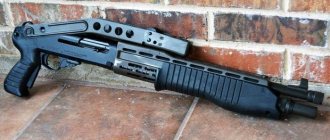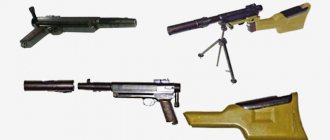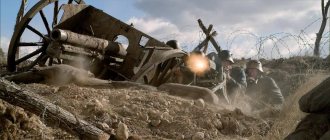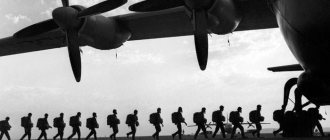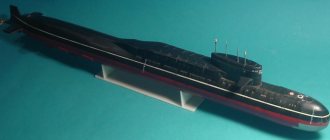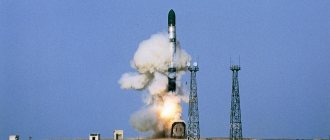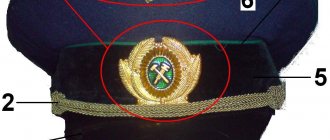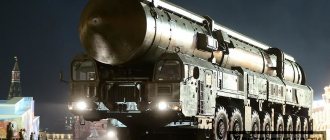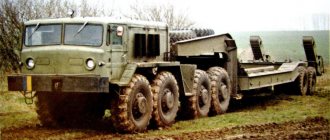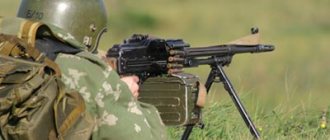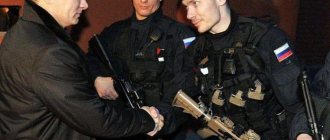When characterizing the US armed forces, we should focus on the special forces Delta Force , which is of utmost importance in the implementation of US special operations abroad.
Delta Force is one of the most capable and effective units of the US military, eliminating America's enemies and rescuing hostages outside and inside the United States.
In the 1970s, Colonel Charles Beckwith was one of the first military officers to recognize the dangers of terrorism to the United States. However, the United States did not have the appropriate special forces to counter terrorism. And Colonel Beckwith solved this problem. He went to the UK and trained for several months with the SAS. In fact, Colonel Beckwith copied the structures and training methods of the SAS, while adapting them to US conditions. Thus, within two years, the special forces unit Delta Force , which received the official name of the 1st operational special forces regiment of the US Ground Forces "Delta".
The Delta Force unit and the United States Navy SEALs (DEVGRU) are the main striking force against the top of terrorist organizations.
Delta Force fighters practice all their skills in real combat conditions. Close combat is their natural element. All US units look up to Delta Force soldiers, from police special forces to the protection of US Presidents.
Example of a Delta Force hostage rescue operation
In 1989, US citizen Kurt Mewes was arrested for anti-government activities in Panama. Mews was a full-time agent of the US Central Intelligence Agency, so the US authorities could not leave him in the hands of the Panamanians. The operation to rescue him was entrusted to the Delta Force detachment, and despite the constant postponement of the invasion of Panama, it was decided to be carried out by the Delta Force, SEALs and other army special forces, calling it “Just Cause”. The purpose of the operation was to remove the regime of President Noriega.
But it was the Delta Force detachment that carried out the release of the CIA agent as part of Operation Just Cause. In order for everything to go well, the special forces had to very quickly penetrate the prison, eliminate all threats and evacuate Agent Mews. This type of operation is a classic example of close combat.
Special forces from the Delta Force detachment parachuted from an MH-6 helicopter, entered from the roof and cleared the floors where Agent Mews could be kept. When he was found, he was taken to the roof and put into a helicopter, which was waiting for him at a specially designated place. And everything would be fine and according to plan. But the plan is sometimes violated by objective factors...
Delta Force freed the agent, but as he was being transported to the base, the helicopter crashed. The CIA agent was not injured, but several special forces were injured, and the Delta Force group needed to get through the encirclement to its forces. Delta Force requested assistance, which was provided by M-113 armored personnel carriers, and the group was picked up and sent to safety.
During Operation Acid Gambit, all participants in the operation used night vision devices, which provided significant advantages over the enemy. Delta Force was one of the first to use night vision devices, increasing the effectiveness of special operations. In the same operation, Delta Force used M4 rifles and MP-5 submachine guns.
The M4A1 rifle has a compact size thanks to a telescopic stock; it can be fixed in three positions, depending on the situation. The rifle is also equipped with an excellent device for silent shooting. This weapon is perfect for paratroopers and special forces. The M4 is easy to transport, hide and maintain.
To ensure the element of surprise, Delta Force is often dropped from helicopters. During Operation Acid Gambit, the unit parachuted at night.
Before each mission, Delta Force fighters practice in detail the technique of landing using a rope. There are two such techniques. First, when fighters descend to the ground on a thin cable, for this they wear special equipment that has a braking system and carbines. The second is when the fighters descend using a rope. You need to brake with your hands, knees and soles.
After the failed Operation Eagle Claw, military officials decided to reform the special operations unit system. As a result of the reform, two more units appeared that had specific tasks. This is a special forces unit of the US Navy SEAL Team 6, which is engaged in reconnaissance, sabotage or hostage rescue. Another unit created was the 160th Special Operations Aviation Regiment, dubbed the "Night Stalkers", which concentrates its activities on operations such as "Eagle Claw".
In order to prevent information leakage, coordinate actions and exercise control over all special operations forces in the United States, the Joint Special Operations Command was created.
A uniform
The Pentagon carefully monitors the publication of any information about the Delta Force and refuses to comment on its secret missions. Delta operators are guaranteed freedom of movement and autonomy. They rarely wear uniforms, usually wearing civilian clothes both everyday and on missions. This was done in order to hide the similarities between the classified fighters. When they wear a single camouflage, there is no marking, no name, no rank. The style of hair on the head and face is allowed to be informal, appropriate to civilian standards, so that in the event of an invasion the operator will not be recognized as military personnel. The special position that distinguishes Delta from conventional troops is mentioned in the book Black Hawk Down
) Mark Bowden.
Delta Force structures and organization
The Delta Force staff is estimated at 800-1000 employees, along with those directly involved in operations. The US Army's Delta Force special forces include:
Companies A, B, C; operational headquarters department D; administrative department E, personnel department, combat training department, equipment maintenance department, special communications department, information and research department, financial service, medical service, transport department, separate helicopter squadron.
Notes
USMC Special Forces MARSOC Separate regiment of the USMC Special Forces Special Forces of the US Navy Linear units of the Special Forces of the Navy Linear units of the Special Forces of the Navy US Air Force Special Forces AFSOC 1st OAP Special Forces Air Force · 24th Air Force Special Operations Operational Unit
·
27th Air Force Special Operations Operational Unit
·
352nd Air Force Special Operations Operation UnitParts of constant readiness of USO GU Special Forces "Delta" · Naval Special Rapid Deployment Group
US Armed Forces Operational Directorate/Special Forces Troop Operational Directorates OSh Armed Forces in the African Theater of Operations · OSh of the Armed Forces in the Middle East theater of operations
·
OSh of the Armed Forces in the European theater of operations
·
OSh of the Special Forces in the Republic of Korea
·
OSh of the Armed Forces in the Pacific theater of war: Incorrect or missing image To improve this article it is desirable: - Correct the article according to Wikipedia stylistic rules.
Excerpt characterizing Delta (special unit)
Pierre hastily took out his wallet and watch, and for a long time could not remove the wedding ring from his fat finger. When this was done, the Mason said: “As a sign of obedience, I ask you to undress.” - Pierre took off his tailcoat, vest and left boot as directed by the rhetorician. The Mason opened the shirt on his left chest, and, bending down, lifted his trouser leg on his left leg above the knee. Pierre hastily wanted to take off his right boot and roll up his trousers in order to save a stranger from this labor, but the Mason told him that this was not necessary - and handed him a shoe on his left foot. With a childish smile of modesty, doubt and self-mockery, which appeared on his face against his will, Pierre stood with his arms down and legs apart in front of his brother the rhetorician, awaiting his new orders. “And finally, as a sign of sincerity, I ask you to reveal to me your main passion,” he said. - My passion! I had so many,” Pierre said. “That passion which, more than any other, made you hesitate on the path of virtue,” said the Mason. Pierre paused, searching. "Wine? Consolidation? Idleness? Laziness? Hotness? Anger? Women?" He went over his vices, mentally weighing them and not knowing which one to give priority to. “Women,” Pierre said in a quiet, barely audible voice. The Mason did not move or speak for a long time after this answer. Finally he moved towards Pierre, took the handkerchief lying on the table and again blindfolded him. – For the last time I tell you: turn all your attention to yourself, put chains on your feelings and look for bliss not in passions, but in your heart. The source of bliss is not outside, but within us... Pierre already felt within himself this refreshing source of bliss, now filling his soul with joy and tenderness. Soon after this, it was no longer the former rhetorician who came for Pierre into the dark temple, but the guarantor Villarsky, whom he recognized by his voice. To new questions about the firmness of his intentions, Pierre answered: “Yes, yes, I agree,” and with a radiant childish smile, with an open, fat chest, unevenly and timidly walking with one barefoot and one shod foot, he went forward with Villarsky placed at his side. bare chest with a sword. From the room he was led along corridors, turning back and forth, and finally led to the doors of the box. Villarsky coughed, he was answered with Masonic knocks of hammers, the door opened in front of them. Someone's bass voice (Pierre's eyes were still blindfolded) asked him questions about who he was, where, when he was born? etc. Then they took him somewhere again, without untying his eyes, and while he walked they told him allegories about the labors of his journey, about sacred friendship, about the eternal Builder of the world, about the courage with which he must endure labor and danger . During this journey, Pierre noticed that he was called either a seeker, or a sufferer, or a demander, and at the same time they knocked him with hammers and swords in different ways. While he was being led to some subject, he noticed that there was confusion and confusion between his leaders. He heard how the surrounding people argued among themselves in whispers and how one insisted that he be led along some kind of carpet. After this, they took his right hand, placed it on something, and with his left they ordered him to put a compass to his left chest, and forced him, repeating the words that the other was reading, to read the oath of allegiance to the laws of the order. Then they put out the candles, lit alcohol, as Pierre heard by the smell, and said that he would see a small light. The bandage was removed from him, and Pierre, as if in a dream, saw, in the faint light of the alcohol fire, several people who, wearing the same aprons as the rhetorician, stood opposite him and held swords pointed at his chest. Between them stood a man in a white, bloody shirt. Seeing this, Pierre moved his chest forward towards the swords, wanting them to stick into him. But the swords pulled away from him and the bandage was immediately put on him again. “Now you have seen a small light,” someone’s voice told him. Then they lit the candles again, said that he needed to see the full light, and again they took off the blindfold and more than ten voices suddenly said: sic transit gloria mundi. [This is how worldly glory passes.] Pierre gradually began to come to his senses and look around the room where he was and the people in it. Around a long table covered in black sat about twelve people, all in the same clothes as those he had seen before. Pierre knew some of them from St. Petersburg society. An unfamiliar young man sat in the chair, wearing a special cross around his neck. On the right hand sat the Italian abbot, whom Pierre had seen two years ago at Anna Pavlovna's. There was also one very important dignitary and a Swiss tutor who had previously lived with the Kuragins. Everyone was solemnly silent, listening to the words of the chairman, who was holding a hammer in his hand. There was a burning star embedded in the wall; on one side of the table there was a small carpet with various images, on the other there was something like an altar with a Gospel and a skull. Around the table there were 7 large, church-like candlesticks. Two of the brothers brought Pierre to the altar, put his legs in a rectangular position and ordered him to lie down, saying that he was throwing himself towards the gates of the temple. “He must get a shovel first,” one of the brothers said in a whisper. - A! completeness please,” said another. Pierre, with confused, myopic eyes, disobeying, looked around him, and suddenly doubt came over him. "Where I am? What am I doing? Are they laughing at me? Will I be ashamed to remember this? But this doubt lasted only for an instant. Pierre looked back at the serious faces of the people around him, remembered everything he had already gone through, and realized that he could not stop halfway. He was horrified by his doubt and, trying to evoke in himself the former feeling of tenderness, he threw himself towards the gates of the temple. And indeed a feeling of tenderness, even stronger than before, came over him. When he had been lying there for some time, they told him to get up and put on him the same white leather apron that the others were wearing, they gave him a shovel and three pairs of gloves, and then the great master turned to him. He told him to try not to stain the whiteness of this apron, which represents strength and purity; then about the unknown shovel he said that he should work with it to cleanse his heart from vices and condescendingly smooth over the heart of his neighbor with it. Then about the first men’s gloves he said that he could not know their meaning, but must keep them, about other men’s gloves he said that he should wear them in meetings, and finally about the third women’s gloves he said: “Dear brother, and these women’s gloves are for you.” the essence is determined. Give them to the woman you will honor the most. With this gift, assure the one whom you choose as a worthy stonemason of the integrity of your heart.” And after being silent for a while, he added: “But be careful, dear brother, that these gloves are not adorned by unclean hands.” While the great master uttered these last words, it seemed to Pierre that the chairman was embarrassed. Pierre became even more embarrassed, blushed to the point of tears, like children blush, began to look around restlessly, and an awkward silence ensued. This silence was interrupted by one of the brothers, who, leading Pierre to the carpet, began to read from a notebook an explanation of all the figures depicted on it: the sun, the moon, the hammer. a plumb line, a shovel, a wild and cubic stone, a pillar, three windows, etc. Then Pierre was assigned his place, they showed him the signs of the box, said the opening word and finally allowed him to sit down. The Great Master began to read the charter. The charter was very long, and Pierre, from joy, excitement and shame, was not able to understand what was being read. He listened only to the last words of the charter, which he remembered. “In our temples we do not know other degrees,” the great master read, “except those that are between virtue and vice. Beware of making any distinction that might violate equality. Fly to the aid of your brother, no matter who he is, guide the erring one, lift up the falling one, and never harbor anger or enmity against your brother. Be kind and friendly. Stir up the fire of virtue in all hearts. Share your happiness with your neighbor, and may envy never disturb this pure pleasure. Forgive your enemy, do not take revenge on him, except by doing him good. Having thus fulfilled the highest law, you will find traces of the ancient majesty you have lost.” He finished and, standing up, hugged Pierre and kissed him. Pierre, with tears of joy in his eyes, looked around him, not knowing how to respond to the congratulations and renewal of acquaintances with whom he was surrounded. He did not recognize any acquaintances; in all these people he saw only brothers with whom he was eager to get down to business. The great master slammed his hammer, everyone sat down, and one read a lesson on the need for humility. The great master offered to perform the last duty, and an important dignitary, who bore the title of alms collector, began to make the rounds of the brothers. Pierre wanted to write down all the money he had on the alms sheet, but he was afraid to show pride by doing so, and he wrote down the same amount as others wrote down. The meeting was over, and upon returning home, it seemed to Pierre that he had come from some long journey, where he had spent dozens of years, had completely changed and fell behind the previous order and habits of life. The next day after being admitted to the lodge, Pierre sat at home, reading a book and trying to understand the meaning of the square, which depicted God on one side, moral on the other, physical on the third, and mixed on the fourth. From time to time he looked up from the book and the square and in his imagination made up a new life plan for himself. Yesterday in the box he was told that a rumor about a duel had reached the sovereign's attention, and that it would be more prudent for Pierre to leave St. Petersburg. Pierre intended to go to his southern estates and take care of his peasants there. He was joyfully pondering this new life when Prince Vasily suddenly entered the room. – My friend, what have you done in Moscow? Why did you quarrel with Lelya, mon сher? [my dear?] “You are mistaken,” said Prince Vasily, entering the room. “I found out everything, I can tell you correctly that Helen is innocent before you, like Christ before the Jews.” - Pierre wanted to answer, but he interrupted him. “And why didn’t you address me directly and simply as a friend?” “I know everything, I understand everything,” he said, “you behaved as befits a person who values his honor; It may be too hasty, but we won’t judge that. Just remember the position in which you place her and me in the eyes of the whole society and even the court,” he added, lowering his voice. – She lives in Moscow, you are here. Remember, my dear,” he pulled him down by the hand, “there is one misunderstanding here; I think you feel it yourself. Write a letter with me now, and she will come here, everything will be explained, otherwise I’ll tell you, you can get hurt very easily, my dear. Prince Vasily looked at Pierre impressively. “I know from good sources that the Empress Dowager takes a keen interest in this whole matter.” You know, she is very merciful to Helen. Several times Pierre was going to speak, but on the one hand, Prince Vasily did not allow him to do so, on the other hand, Pierre himself was afraid to start speaking in that tone of decisive refusal and disagreement in which he firmly decided to answer his father-in-law. In addition, the words of the Masonic charter: “be kind and friendly” came to his mind. He winced, blushed, stood up and fell down, working on himself in the most difficult task in his life - to say something unpleasant to a person’s face, to say something that was not what this person, no matter who he was, expected. He was so accustomed to obeying this tone of Prince Vasily’s careless self-confidence that even now he felt that he would not be able to resist it; but he felt that his entire future fate would depend on what he said now: whether he would follow the old, former road, or along that new one, which was so attractively shown to him by the Masons, and on which he firmly believed that will find rebirth to a new life. “Well, my dear,” said Prince Vasily jokingly, “tell me: “yes,” and I will write to her on my own behalf, and we will kill the fat calf.” - But Prince Vasily did not have time to finish his joke, when Pierre, with a fury in his face that reminded him of his father, without looking into the eyes of his interlocutor, said in a whisper: - Prince, I did not invite you to my place, go, please, go! “He jumped up and opened the door for him. “Go,” he repeated, not believing himself and rejoicing at the expression of embarrassment and fear that appeared on Prince Vasily’s face.
Further reading[edit]
- Boykin, William (2011). Never Give Up: A Soldier's Journey to the Crossroads of Faith and Freedom
. FaithWords; Reprint edition. ISBN 0446583227. - Bowden, Mark (2001). Killing Pablo: The Hunt for the World's Greatest Criminal
. New York: Atlantic Monthly Press. ISBN 0-87113-783-6. About the hunt for Pablo Escobar. - Bowden, Mark (2006). The Ayatollah's Guests: The First Battle of America's War on Militant Islam. New York: Atlantic Monthly Press. ISBN 978-0-87113-925-2. OCLC 62738726.
- Bowden, Mark (May 2006). "Defeat in the Desert". The Atlantic Monthly
. - Fury, Dalton (2009). Killing Bin Laden: Delta Force Commander's Account of the Hunt for the World's Most Wanted Man
. New York: St. Martin's Griffin. ISBN 978-0-312-56740-8. OCLC 317455875. - Griswold, Terry and D.M. Giangreco (2002). DELTA: America's Elite Counterterrorism Force
. Osceola, WI: Motorbooks International. ISBN 0-87938-615-0. OCLC 25549191. - National Geographic Documentary: The Road to Baghdad
. - Pushy, Fred J. et al. (2002). US Counterterrorism Forces
. St. Paul, MN: MBI Publishing. ISBN 0-7603-1363-6. OCLC 49391516. - Schauer, Hartmut (2008). Delta Force
. Stuttgart: Motorbuch Verlag. ISBN 978-3-613-02958-3. - Smith, Michael (2007). Killer Elite: America's Most Secret Special Operations Team
. New York: St. Martin's Press. ISBN 0-312-36272-2. Delta's collaboration with Intelligence Support Activity.
